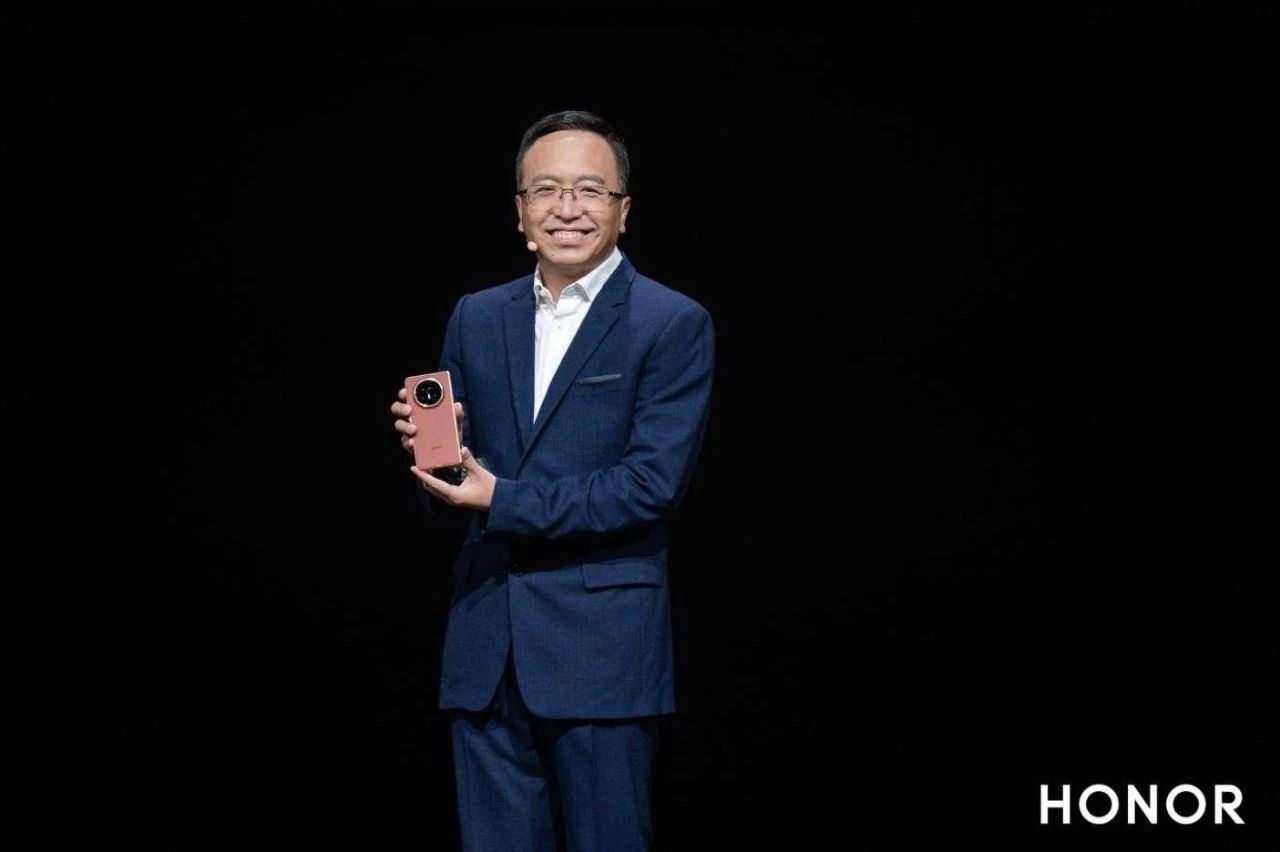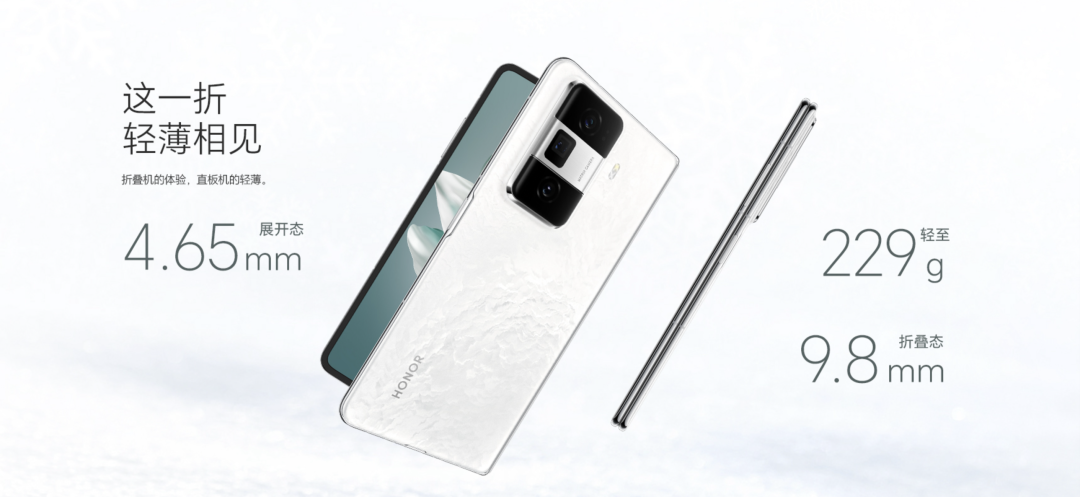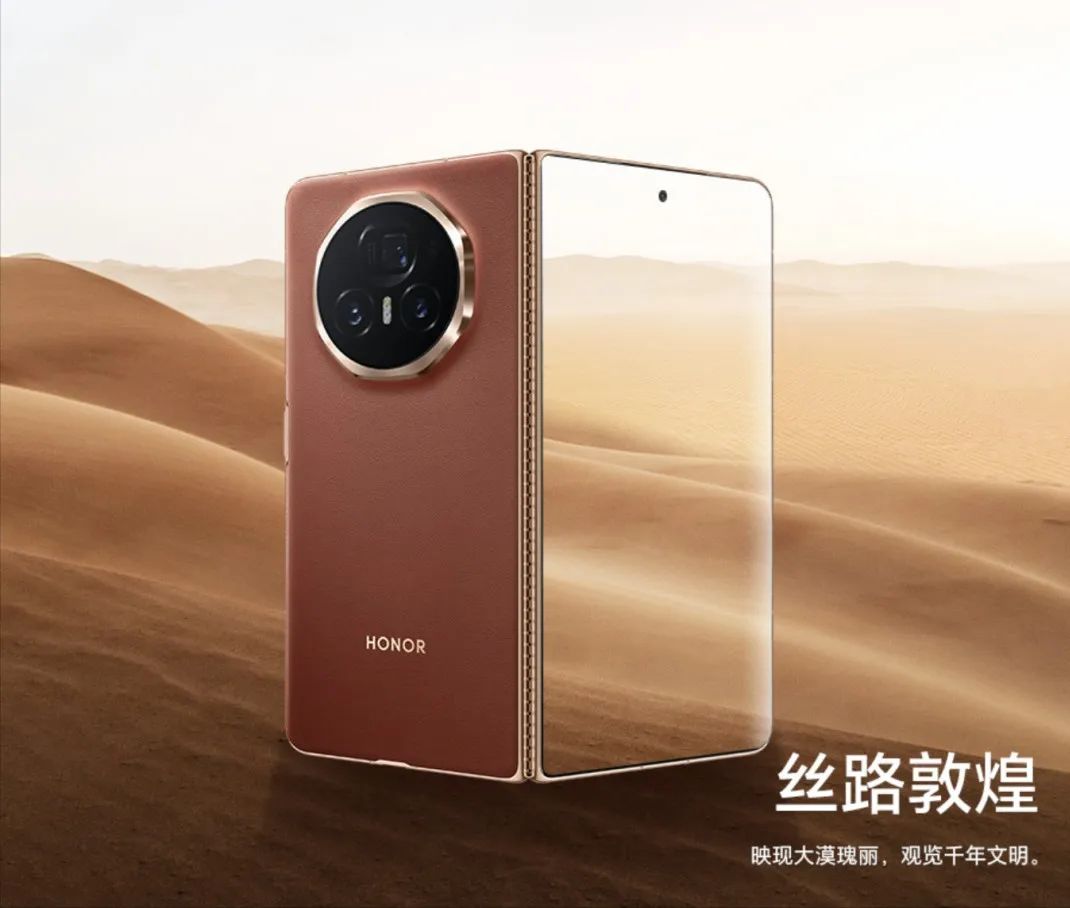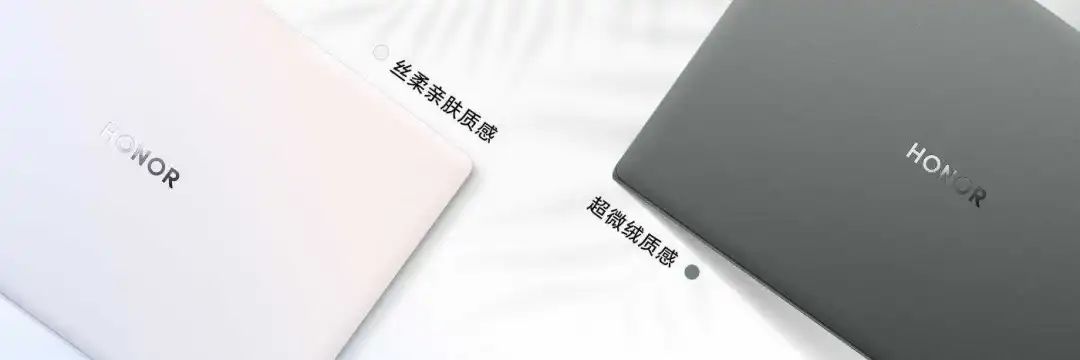Smartphone's Journey Out of the Red Ocean: User-Oriented and Groundbreaking Innovation is the Right Path
![]() 07/17 2024
07/17 2024
![]() 633
633
Folding screens should win today, and end-side AI bets on tomorrow.
The hardware industry, which has been mired in a brutal competition for too long, can finally breathe a sigh of relief.
Beyond traditional categories, new categories such as folding screen phones, AI phones, camera phones, durable phones, performance phones, mid-range phones, and even retro phones are emerging, invigorating the market. The integration of large AI models and hardware acceleration has sparked a new wave of AI hardware, portending a "second spring" for the hardware industry.
In this new round of competition, how can hardware brands establish themselves? Honor, which rose to prominence in the first half of the year, gave its answer at the Magic flagship product launch event in July, setting a new tone for the competition in the hardware industry in the second half of 2024.

Obsessed with thinness, Honor makes folding screens accessible to the masses
Folding screens have become the second growth curve for the mobile phone industry.
Folding screen phones, with their combination of large screens and portability, inherently have explosive potential. However, their path to popularization has not been smooth.
Initially, due to immature technologies such as hinges and screens, the user experience of folding screen phones was incomplete, with issues like noticeable screen scratches and a lack of app ecosystem.
After some time of development, folding screen phones no longer had basic technical flaws, but the "bulkiness" caused by the internal stacking of components persisted, greatly compromising their portability advantage and making them uncomfortable to hold in actual use.
IDC market data reports show that in 2020, global shipments of folding screen phones were only 1.9473 million units, accounting for less than 1% of the hundreds of millions of straight-screen phone shipments. This trend of "acclaimed but not popular" continued until 2023, when TrendForce reported that global shipments of folding screen phones reached approximately 15.9 million units, with a market share of only 1.4%.
How can folding screen phones become mass-market products? Honor's solution is to make folding screen phones thinner and lighter while ensuring performance and battery life.
Before Honor entered the folding screen phone market, pioneers either failed to realize that "bulkiness is an obstacle to the popularization of folding screen phones," or realized it but lacked effective solutions. For example, the Samsung Galaxy Z Fold 2 had a thickness of 16.8mm and a battery capacity of only 4500mAh.
In January 2022, Honor's first-generation folding screen phone, the Magic V, aimed for "thinness," setting a record of 14.3mm at the time. While being the thinnest, the Honor Magic V also featured the most powerful processor and a 4750mAh battery, truly achieving "both thinness and power."
In 2023, Honor's second-generation flagship folding screen phone, the Magic V2, set a new record for thinness at 9.9mm, ushering in the era of "single-digit mm" thickness for folding screen phones.
Competitors have since realized that "thinness" is the key to winning in the folding screen phone market, with each subsequent product aiming for a thinner design. However, the Magic V2's record of 9.9mm has yet to be broken, even 12 months later.
Honor's rapid growth in shipments and market share in 2023 and the first half of 2024 is largely attributable to folding screen phones. This year, IDC data shows that Honor's folding screen phone shipments in the Chinese market increased by 467.0% year-on-year, ranking first in growth rate.

On July 12, Honor released its new flagship folding screen phones, the Magic V3 and Magic Vs3, which once again broke their own thinness records, entering the 9mm era for folding screen phones. At the launch event, Zhao Ming, CEO of Honor Terminals, showed the Magic V3 prototype, which is even thinner than some Ultra straight-screen phones on the market. The Honor Magic Vs3 achieves a breakthrough in thinness while maintaining comparable performance, imaging, and AI capabilities to straight-screen phones.

There is an impossible triangle in the folding screen phone industry: thinness, long battery life, and high performance cannot all be achieved simultaneously, and trade-offs must be made. Honor's direction in folding screen phones is to break this impossible triangle.
Making folding screen phones thinner and lighter while maintaining performance and battery life is extremely challenging, testing overall strength. It's like "building a temple in a snail shell."
Based on the industry's first self-developed Luban architecture, the Honor Magic V3 employs 19 innovative materials and 114 innovative microstructures, including titanium alloy, shield tunneling steel, and aerospace special fibers, the result of joint innovation with industry chain partners. The phone also features the third-generation Qinghai Lake battery with a silicon content of 10%, providing powerful battery life. With its thinness, high voltage, and high capacity, the Qinghai Lake battery has made a significant contribution to making folding screen phones thinner and lighter.

Obsessed with thinness is the core product philosophy of Honor's folding screen phones, as evidenced by the theme of this launch event: "The More Powerful, The Thinner."

Honor's product matrix for folding screen phones is becoming increasingly complete.
Building on the technology accumulated in the Magic V series, Honor has created the Magic Vs series, positioning it as a pioneering technology that brings the price of folding screen flagship phones to a more consumer-friendly range of around 7,000 yuan.
It has also introduced the Magic V Purse, a folding screen phone with an outward-folding design that focuses on fashion aesthetics, allowing users with stronger demands for stylish appearances to enjoy flagship-level thinness.
In June of this year, Honor released its first vertically folding screen phone, the Magic V Flip.
By now, Honor has completed its full range of folding screen phone layouts, becoming one of only two brands in the world with three folding screen form factors: vertical, horizontal outward-folding, and horizontal inward-folding.
By launching more product forms to "broaden" its offerings and continuously setting new thinness records to "deepen" its capabilities, Honor's folding screen phones have become the biggest variable in the industry, shouldering the task of pushing folding screen phones from niche to mainstream.
According to estimates from CICC, global shipments of folding screen phones are expected to reach 80 million units in 2025. Counterpoint, on the other hand, predicts that global shipments will grow to 55 million units by 2025. Regardless of the data, it is clear that the folding screen phone market is growing rapidly. In this new round of competition, Honor, armed with its thin and light designs, has already occupied the most advantageous position.
Honor's AI Hardware Vision: End-Side AI, System-Driven
Large model technologies are accelerating their integration with various industries, and hardware has become a key entry point for AI to reach mass consumption scenarios. As a result, the market has seen an AI hardware wave in 2024, with AI phones, AI PCs, AI watches, AI TVs, and even AI gas stoves emerging in droves.
However, what new value can AI hardware bring to users? Many products have not adequately answered this question. Consequently, a phenomenon has emerged: in many mobile phone stores, salespeople who are familiar with user needs do not introduce AI features but instead emphasize more common characteristics such as thinness, long battery life, strong performance, and imaging capabilities.
AI is only valuable when it is converted into functionality and better solves user problems. Honor recognized this early on. Although Honor was one of the first brands to widely apply AI technology at the system level, it did not publicly announce an AI strategy or position AI phones as a new category.
Zhao Ming has repeatedly elaborated on Honor's "AI view": in the face of this round of AI transformation, the core value of terminal manufacturers is actually to provide system-level AI capabilities rather than application-level AI functions. Therefore, Honor emphasizes "doing end-side, platform-level AI and using AI to reconstruct the operating system," and on this basis, opening up terminal AI capabilities to third-party large models, applications, and services to provide users with better services, more value, and better experiences together with developers.
Based on years of AI OS accumulation, Honor released its self-developed operating system, MagicOS 8.0, at the beginning of 2024. This system incorporates a self-developed Magic large model, and its new kernel is the first to carry platform-level AI, reshaping user interaction logic through intent recognition.
Unlike traditional touch-based mobile phone operating systems, Honor leads the way in intent recognition interaction, allowing the phone system to actively recognize, understand, and assist users. On the Magic V3 and Magic Vs3, Honor uses AI to reshape the user experience in areas such as performance, imaging, and audio-video, and has launched several new AI-enabled hardware features, such as AI defocusing eye protection technology and AI noise reduction for calls.

Eye protection has always been a selling point that Honor emphasizes in screen display. At the end of last year, Honor established the Oasis Eye Protection Lab, investing 1 billion yuan over three years in screen eye protection and leading the field with over 500 patents. Now, Honor comprehensively applies AI to enhance this selling point. The AI active eye protection technology premiered on the Magic V3 and Magic Vs3 uses AI to empower hardware, allowing the screen to continuously learn users' eye habits and perform comprehensive adaptive dimming.
Many AIGC mobile phone functions on the market are implemented in the cloud based on third-party large models, such as AI photo erasing and AI call summaries. These functions satisfy user needs and have naturally become standard features. However, smart hardware manufacturers need to think more about how to leverage their own hardware, OS, and platform-level capabilities to better utilize AI technologies and create deeper, more comprehensive AI functions.
As seen in Honor's end-side AI practices, the MagicPad 2 uses AI to achieve a broader sound field, offering a more immersive audio experience than ordinary Dolby Atmos. The AI call noise reduction feature on the Magic V3 and Magic Vs3 achieves noise separation on the end side, ensuring a better call experience. These AI functions are all innovative AI applications that combine hardware, software, and OS.
Zhao Ming stated at the launch event that AI-driven hardware and AI-reconstructed operating systems have great potential. Honor deployed a complete technical roadmap and development strategy three years ago.
Great minds think alike.
It is not difficult to observe that Apple has not proposed the concepts of AI phones or AI iPhones. At this year's WWDC, Apple unveiled Apple Intelligence, and the upcoming iOS 18 is comprehensively reconstructed based on AI large models. In addition to a new Siri, Apple will open up a large number of AI capabilities as APIs to developers. Furthermore, Apple has made it clear that only a few models with sufficient computing power, such as the iPhone 15 Pro, will support Apple Intelligence to ensure an optimal AI experience. This shows that like Honor, Apple has chosen a path of leveraging AI hardware at the system level, on end-side hardware, and in platform ecosystems. The AI era will undoubtedly usher in AI OS, and Honor's MagicOS 8.0 is already prepared for this era.
In terms of specific end-side AI practices, Honor has already embarked on a journey to comprehensively apply end-side AI technology across a wide range of devices, reshaping user experiences. The result is what LeiTech witnessed at the Honor launch event: Honor, which does not emphasize its AI strategy, has AI integrated into every aspect of its products. AI has become an integral part of Honor's products and business, almost imperceptible.
MagicBook Refuses to be a "Cheaper Alternative," Ushering in the Era of AI Ultrabooks
Based on its OS-level and platform-level end-side AI layout, Honor has much potential in various AI hardware categories.
Beyond mobile phones, Honor's AI PCs are gaining momentum. The MagicBook Art 14 released this time offers a glimpse into Honor's approach to AI PCs and its vision for building a full range of IoT products.
Zhao Ming said that when naming the MagicBook Art 14, they considered using "Air" to position it because, like the Magic V3 and Magic Vs3, it focuses on thinness. However, considering that the MagicBook Art 14 is not a purely ultra-thin laptop but an artwork that combines fashionable design, thinness, and technological innovation, they ultimately chose "Art" for its name.

In terms of product, the MagicBook Art 14 is definitely not intended to be a "cheaper alternative" to the MacBook Air. On the contrary, it is the epitome of Honor's high-end technology, representing the current highest level of thin and light AI laptops, with impressive selling points such as the inclusion of Oasis eye protection technology, which is crucial for users who use the MagicBook as a productivity tool for extended periods.
In the current market, the only options for thin and high-end laptops are MacBook and others. Honor has two opportunities:
1. Honor has mature technological accumulations in hinges, architectures, and interactions from its folding screen phones, which are feeding back into the thinness and interactive innovations of laptops, allowing it to create products that outperform MacBook because Apple does not have a folding screen phone product line. The design inspiration for the MagicBook Art 14 comes from folding screen phones, and its thinness and power are inseparable from Honor's experience with "thin" folding screen phones.
2. AI PCs represent an opportunity for the PC industry to "overtake on a different track." Whether it's OEMs like Lenovo, Huawei, and Honor, chip giants like Intel, AMD, NVIDIA, and Qualcomm, or OS titans like Microsoft, Apple, and Huawei's HarmonyOS, all attach great importance to this trend. Relying on its end-side AI accumulations, the MagicBook Art 14 features many AI-enabled hardware innovations and can seamlessly collaborate and share across scenarios, devices, and platforms with Honor phones, meeting users' full-scene digital needs.

With folding screens feeding back into laptops and AI reshaping PC values, these two opportunities are rare and invaluable. As a result, Honor's PCs will compete head-to-head with Apple, refusing to be just "others" in thin and high-end laptops or a "cheaper alternative" to the MacBook Air. Perhaps this is also the deeper meaning behind Honor's decision to abandon "Air" and create a separate category called "Art" for its new products.
Insisting on Being a "Slow Bird," Honor's Countertrend Boom is Inevitable
From the overall data, it is clear that the mobile phone and hardware industries are indeed facing headwinds, primarily due to mature product forms, difficult innovations, and declining consumer desire for replacements.
To overcome this “innovation dilemma,” technology is the only key. In 2024, the era of AGI driven by large models will accelerate, bringing new opportunities for the hardware industry through AI. At the same time, seemingly mature focal points such as batteries, folding mechanisms, screens, imaging, and even materials are still being explored for numerous technological innovations by companies like Honor. The result is that possibilities for innovation in smartphones and hardware still abound.
However, technological innovation has never been a matter of “last-minute effort,” much like Honor’s long-advocated business philosophy of “the early bird catches the worm.” This involves forward-thinking planning, preparedness, and taking the lead in trials, so that when a technological breakthrough occurs, one can embrace it in the best position. Zhao Ming once said that Honor adheres to the spirit of the “early bird”—focusing earnestly on product development without seeking quick success or cutting corners.
Honor indeed practices this approach. In terms of AI, folding mechanisms, batteries, screens, and other foundational frontier technologies, Honor has established the ITMT organization dedicated to researching forward-looking technologies. According to publicly available information, Honor invests 10% of its revenue into research and development, making it the company with the highest R&D investment in the industry.
True technological innovation is undoubtedly characterized by long cycles, high risks, and substantial investments. Because of this, many brands are reluctant to engage in technological development themselves, instead opting for a "borrowed" approach, waiting for pioneers to navigate pitfalls and then entering the market to reap the benefits once the timing is right. Honor, however, remains steadfast in not taking shortcuts. When they identify an opportunity, they commit to it fully. For instance, while AI has only become a major focus in the smartphone industry in the past couple of years, with some manufacturers announcing they are going "all in," Honor began its exploration back in 2016 and was the first to deeply integrate AI at the OS level.
This commitment results in breakthrough innovations for Honor, exemplified by the saying, “hearing thunder in silence and seeing blossoms in a barren field.” The Magic V2 maintained its record for the 9.9mm lightweight body for 12 months until it was surpassed by the Magic V3 with a 9.2mm body. It is through years of "thick accumulation" that today's "thin bursts" of innovation are possible.
Technological innovation should not be about "finding nails for your hammer," but rather "finding hammers for the nails you see." Honor’s approach to innovation has always been grounded, focusing on practical solutions to consumer problems rather than flashy, impractical gimmicks. For example, while eye protection may seem commonplace, the increasing time people spend staring at screens can lead to discomfort and even vision damage. Thus, Honor has concentrated on eye protection technology, allowing users to safely embrace digital life.
At a press conference, Zhao Ming did not believe the smartphone industry was facing a bottleneck. “Continually enabling hardware through AI, or innovating hardware on its own, both hold great potential. We are merely doing what we are supposed to do.” To those who work diligently and to brands committed to grounded innovation, there are no industry bottlenecks—only unmet user needs. As long as user problems are resolved and better products are developed, the challenges faced by the brand and the industry bottlenecks are mere illusions.
“When time extends and space expands, people will realize that the 'dumb bird' is not dumb. It is actually using the smartest way to fly, building its capabilities step by step so that it can continue to soar even when the wind stops, or when it faces headwinds and tailwinds.” Zhao Ming’s foresight from years ago is now being realized by Honor.








